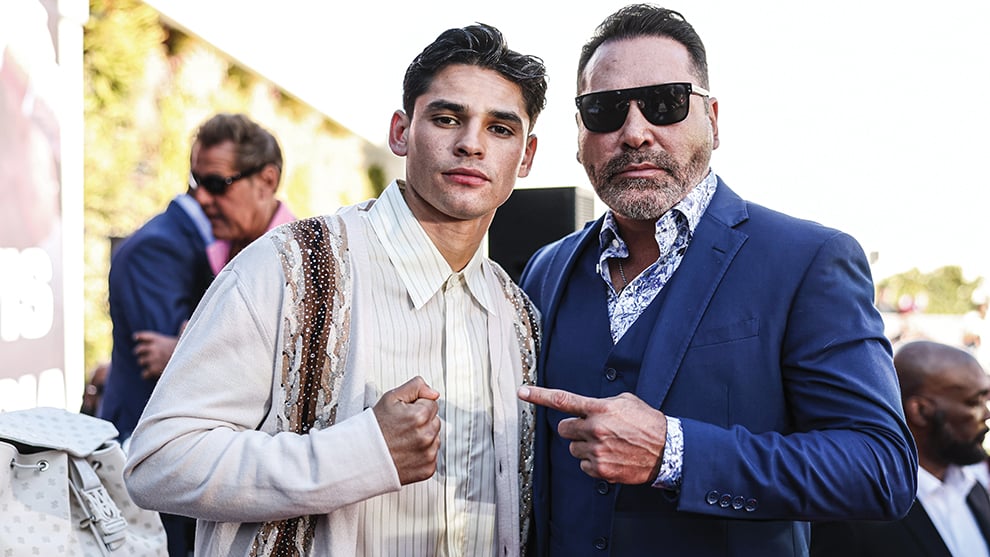IT’S THAT time of the year when we reflect on the 12 months that have just passed, looking back on what went right, what went wrong and highlighting any trends that have emerged. In some respects, boxing has had a standout year with the fights that have taken place. From another angle, one could argue the sport is only becoming more and more fragmented. Whatever your opinion, there’s no doubt it’s been an interesting year. With that in mind, here are some of the most significant developments within boxing media in 2023.
The King is Dead, Long Live the King
Over the past five or six years, streaming services have become more and more powerful within not just boxing, but sport in general. The market used to be dominated by traditional satellite channels – HBO and Showtime in the US, Sky Sports and BT Sport (now TNT Sports) here in the UK. The landscape has seen some dramatic changes. HBO left years ago, and this year Showtime has followed suit.
Despite numerous reports of financial troubles earlier in the year, DAZN is still a major player in boxing broadcasting. ESPN+, with its partnership with Top Rank, is also a powerful platform and more and more big fights are being aired on that streaming platform, rather than ESPN itself. Then, of course, there is the introduction of Amazon Prime. It was announced that the entertainment giant will begin a partnership with Premier Boxing Champions (PBC) in 2024 as part of a multiyear deal.
The picture is different in the UK, though. Sky and TNT are still going strong but there is an undeniable threat from the world of streaming. Those traditional platforms are still the market leaders, and TNT in particular appears to be going from strength to strength. But DAZN and its partnership with Matchroom Boxing, among others, is pumping out regular UK cards and continuing to carve out its own corner in the market.
For fans, this means boxing continues to be an extremely expensive sport to follow. Even if you don’t buy any pay-per-view events, the cost of subscribing to the various streaming platforms to watch regular fight cards is very high. And while, in theory, a competitive market should lead to more innovation and worthwhile products, in boxing it usually just means the best fights rarely happen because broadcasters cannot work together. On the plus side, it is making more content more accessible. Shoulder programming, previous fight broadcasts, even documentaries can all be watched whenever you want, rather than having to tune in at a particular time.
Nothing Rowdy About Saudi
The Kingdom of Saudi Arabia first tested the waters in boxing a few years ago, but in 2023 properly sank its hooks into the sport. TNT Sports, ESPN and DAZN – along with the respective promoters they work with – have all been involved in Saudi’s attempts to cleanse its image to the wider world. The most prominent example was Tyson Fury’s embarrassing contest with Francis Ngannou, which just proved that those in charge in Saudi have plenty of money but still plenty to learn. The show was ridiculously bloated, with very little actual boxing taking place. This weekend we might see an improvement when a far better card, on paper, takes place in the region.
Looking ahead to the future, it seems clear that Saudi Arabia is only going to become more involved in boxing. Just this past week Bob Arum told The Telegraph that he expects the region to become “the new Las Vegas” of boxing, indicating that it will be the desired location for all the biggest fights.
Aside from reporters like Don McRae at The Guardian, this year there was very little exploration by the boxing media of Saudi’s human rights record, and whether the regime in place should be receiving so much support and thanks from those involved in the sport. It’s an extremely complicated issue, and one that deserves thorough analysis and discussion.
The Right to Fight
Another complex topic within boxing is the power dynamic – there are promoters, broadcasters, managers, agents, trainers, sanctioning bodies and, of course, the fighters themselves. At the end of the day, the fighters are the ones who risk their lives for our entertainment. They are the ones who make the most sacrifices, who put their minds and bodies through unfathomable rigour. So it stands to reason that they should have the most power, right?
We all know that isn’t the case, but what we’ve seen this year are more and more fighters publicly advocating for their own rights and autonomy within the sport. Canelo Alvarez has been an obvious example of this for many years, though is something of an anomaly because of his star power. But recently we have seen Amanda Serrano ditch her WBC title so that she could box 12 three-minute rounds. Terence Crawford, having split from a lengthy relationship with Top Rank, has been speaking in the media about fighters having more control over their careers and moving away from promoters and managers. Ryan Garcia, who is embroiled in a struggle with his promoter Golden Boy, has also been very vocal about fighters’ rights and individuality.
While it can be argued that all those names are legitimate stars and can afford to speak out and still get opportunities, it’s also true that they should be applauded for using their respective platforms to speak truth to power. Real change can happen in the sport if more fighters speak up and act in their best interests. It doesn’t need to be as extreme as ditching promoters and managers altogether, but instead shifting the balance of power in their favour.
Boxing on the Box
December 23
Anthony Joshua-Otto Wallin
DAZN PPV
Coverage begins at 7pm
December 26
Naoya Inoue-Marlon Tapales
Sky Sports Arena
Coverage begins at 10am
